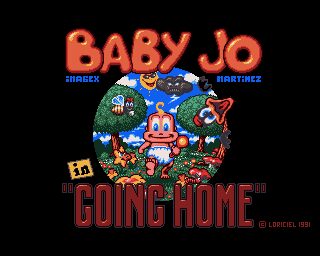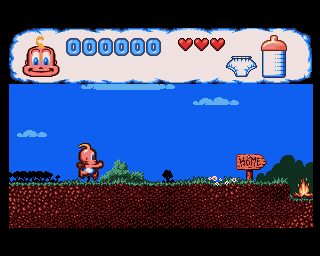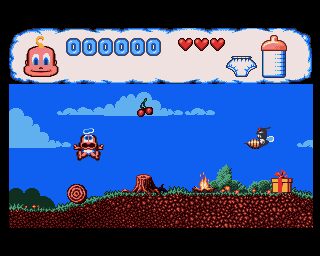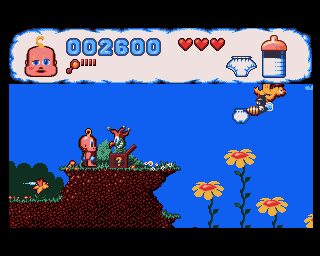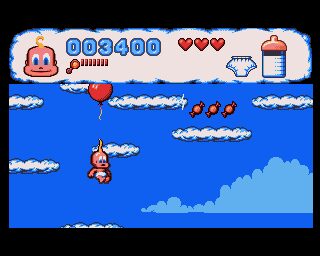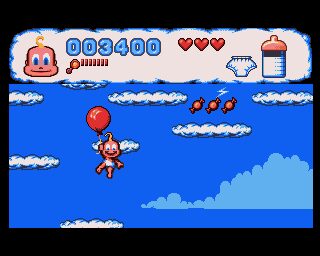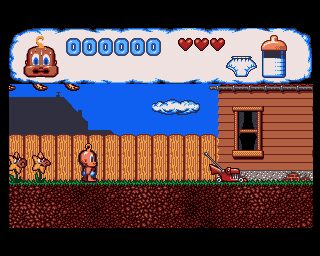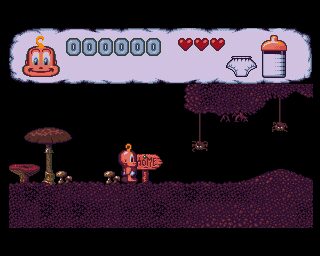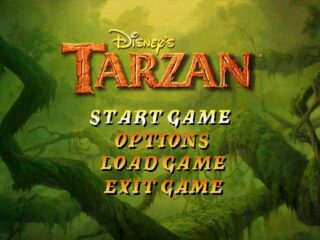Baby Jo in: Going Home is a side-scrolling platformer game developed and published by Loriciel for Amiga, Amstrad CPC, Atari ST, and MS-DOS in 1991.
The game's plot follows the journey of a baby named Jo, who gets lost and has to find his way back home while facing different challenges and obstacles. The gameplay of Baby Jo is straightforward. The player controls Jo, who has to navigate various levels filled with hazards, enemies, and collectibles. Jo's goal is to reach the end of each level, and the player has to guide him to avoid obstacles such as pits, spikes, and enemy creatures. Jo has a limited supply of baby rattles that he can use to defeat enemies by throwing them. However, the rattles are scarce, and the player must use them wisely.
The game features a unique twist: Jo's health meter is represented by a face that becomes increasingly tearful as his health decreases. The player must collect baby bottles throughout the game to keep Jo healthy, and wet diapers indicate his thirst level. If Jo's diaper becomes too wet, he will lose a life. This adds an extra level of challenge to the game and adds a touch of humor.
The graphics in Baby Jo in: "Going Home" are colorful and cartoonish, reminiscent of classic arcade games from the 90s. The sound effects are also well done and add to the game's overall experience. The animations are well drawn, with many frames used to represent the main character so that you can see some nice touches; for example, when Jo falls from a platform, the tuft on his head has a nice "falling" effect. But they are also quite slow, probably because the game was first developed for MS-DOS and then ported to Amiga. Finally, you might disagree with this, but I find the music quite captivating.
Unfortunately, like many 16-bit platformers, the game is too difficult and sometimes even unfair. Additionally, the game lacks any save feature, making it more challenging to complete for some players. I wonder if any playtesting was made for games like this. The fact that the scrolling could have been programmed better doesn't help increase the overall ratings. Anyway, some of us still remember this game as one of the first we played on the Amiga, and that's why we are ready to forgive some flaws.
In short, charming graphics, some excellent ideas, and a lot of humor. But also extreme difficulty. This game got a rating of 85% from Amiga Action and a 49% from Amiga Power. This should tell you everything.
Baby Jo is a good choice if you are a fan of classic arcade-style platformers and you are not afraid of challenges (or you plan to use a trainer).

